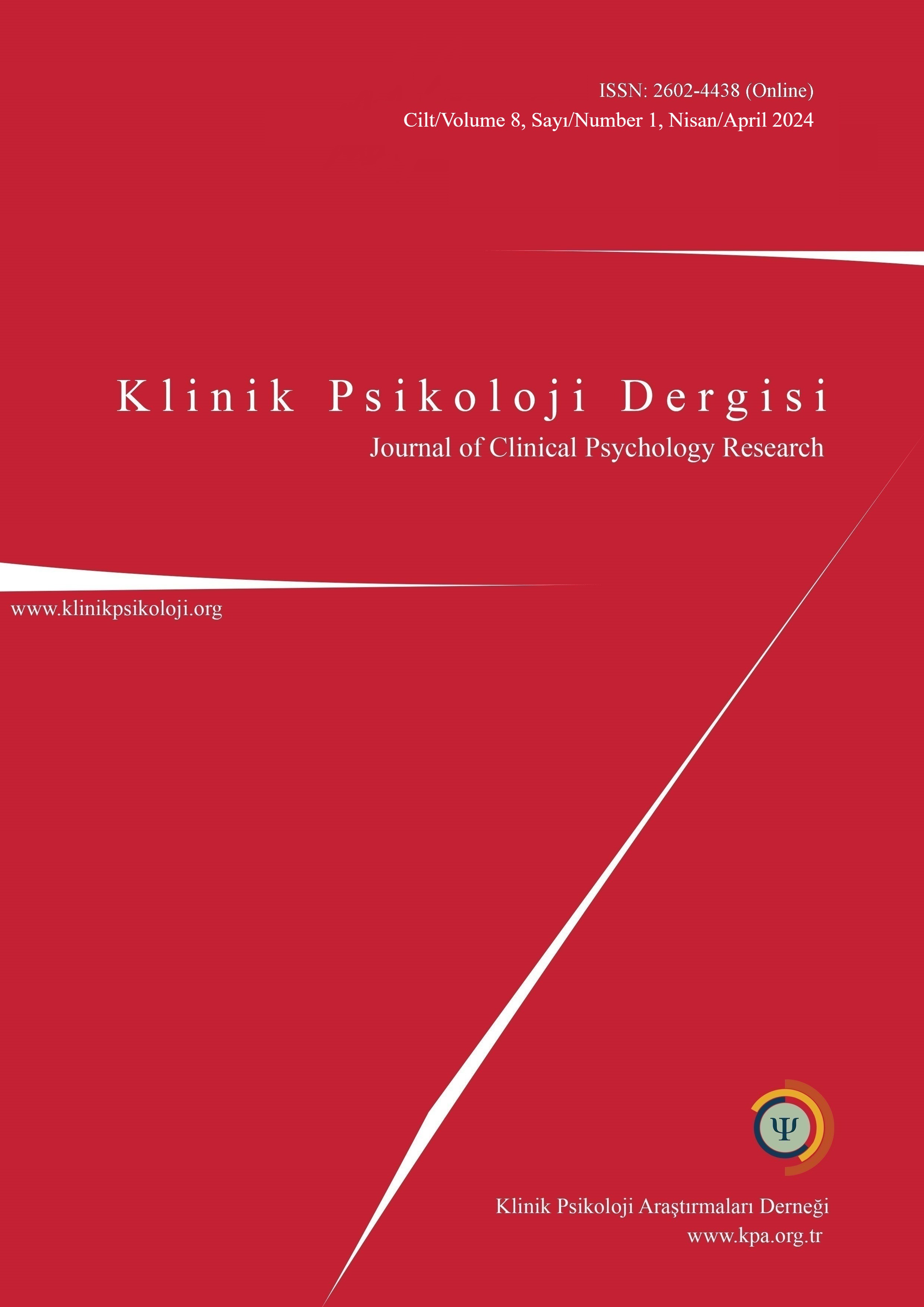Kovid-19 kaynaklı endişenin yaygın anksiyete bozukluğuna etkisinde bilinçli farkındalık, bilişsel kontrol ve bilişsel esneklik değişkenlerinin aracı rolü
The mediating role of mindfulness, cognitive control, and cognitive flexibility on the relationship between COVID-19 concerns and generalized anxiety disorder
COVID-19 Concerns and GAD
Author(s): Yasemin Meral, İbrahim Yakın, Gamze Çarboğa, Ömer Emre BayramSubject(s): Social Sciences, Psychology, Clinical psychology
Published by: Klinik Psikoloji Araştırmaları Derneği
Keywords: COVID-19; generalized anxiety disorder; mindfulness; cognitive control; cognitive flexibility
Summary/Abstract: The outbreak of COVID-19 presents a threat to human psychology and shows an increase in anxiety. With the uncertainty during the pandemic, individuals are concerned about different areas in their life such as health or economy. Thus, an increase in Generalized Anxiety Disorder (GAD) symptoms is expected. The present study aimed to investigate the association between COVID-19 concerns and GAD-symptoms, and the mediating roles of Mindfulness, Cognitive Control (CC), and Cognitive Flexibility (CF) in this relationship. 458 individuals aged between 18-75 (78.4% female, 21.6% male) participated in the present study. Data was collected online using self-reported questionnaires measuring concerns related to COVID-19, GAD-symptoms, Mind-fulness, CC, and CF. The results of the present study showed that GAD-symptoms were signifi-cantly predicted by coronavirus concerns. The more worries about the pandemic outcome, the higher GAD-symptoms were reported. Moreover, this association was mediated by Mindfulness and CC. Mindful individuals and those with higher CC showed fewer GAD-symptoms. Even though CF has been found as decreasing anxiety symptoms, it did not affect coronavirus con-cerns. Regarding GAD, individuals’ worries are not unrealistic, but mostly not linked to real threat. During the pandemic on the other hand, worries are related to real danger. Thus, beliefs about the pandemic might not be maladaptive. Instead of changing these beliefs, having the ability to direct attention purposefully through CC might be more functional. Furthermore, accepting their experiences in a non-judgmental way might be adaptive. These results highlight that individuals with GAD-symptoms might benefit from interventions based on Mindfulness and CC during the pandemic.
Journal: Klinik Psikoloji Dergisi
- Issue Year: 8/2024
- Issue No: 1
- Page Range: 71-84
- Page Count: 14
- Language: Turkish, English

